Filter by

Giving a damn :essays in dialogue with John Haugeland
A collection of essays that use John Haugeland's work on intentionality, embodiment, objectivity, and caring to explore contemporary issues in philosophy of mind."In his work, the philosopher John Haugeland (1945-2010) proposed a radical expansion of philosophy's conceptual toolkit, calling for a wider range of resources for understanding the mind, the world, and how they relate. Haugeland argu…
- Edition
- -
- ISBN/ISSN
- 9780262335850
- Collation
- 1 online resource (vi, 373 pages)
- Series Title
- -
- Call Number
- -
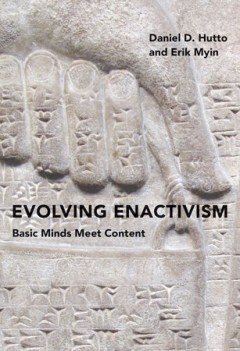
Evolving enactivism :basic minds meet content
Evolving Enactivism" argues that cognitive phenomena - perceiving, imagining, remembering -- can be best explained in terms of an interface between contentless and content-involving forms of cognition. Building on their earlier book Radicalizing Enactivism, which proposes that there can be forms of cognition without content, Daniel Hutto and Erik Myin demonstrate the unique explanatory advantag…
- Edition
- -
- ISBN/ISSN
- 9780262339773
- Collation
- 1 online resource (xxvi, 328 pages).
- Series Title
- -
- Call Number
- -

Scaffolded minds :integration and disintegration
A comprehensive account of cognitive scaffolding and its significance for understanding mental disorders.OCLC-licensed vendor bibliographic record.
- Edition
- -
- ISBN/ISSN
- 9780262353830
- Collation
- 1 online resource (288 pages).
- Series Title
- -
- Call Number
- -
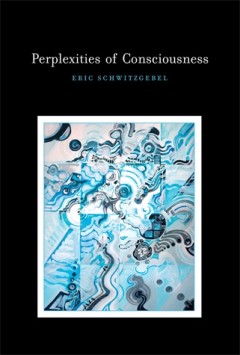
Perplexities of Consciousness
"A Bradford book."In this book, the author examines various aspects of inner life (dreams, mental imagery, emotions, and other subjective phenomena) and argues that we know very little about our stream of conscious experience. In fact, he contends, we are prone to gross error about our ongoing emotional, visual, and cognitive experiences.OCLC-licensed vendor bibliographic record.
- Edition
- -
- ISBN/ISSN
- 9780262295338
- Collation
- 1 online resource (xii, 225 pages) :illustrations.
- Series Title
- -
- Call Number
- -

Furnishing the mind : concepts and their perceptual basis
"A Bradford book."Western philosophy has long been divided between empiricists, who argue that human understanding has its basis in experience, and rationalists, who argue that reason is the source of knowledge. A central issue in the debate is the nature of concepts, the internal representations we use to think about the world. The traditional empiricist thesis that concepts are built up from …
- Edition
- -
- ISBN/ISSN
- 9780262281935
- Collation
- 1 online resource (x, 358 pages) :illustrations
- Series Title
- Representation and Mind series
- Call Number
- 100 PRI f
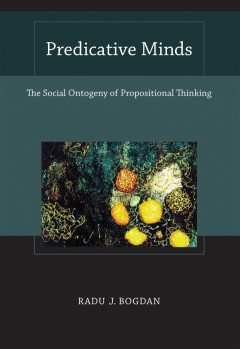
Predicative Minds: The Social Ontogeny of Propositional Thinking
"A Bradford book.""The predicative mind singles out and represents an item in order to attribute to it a property, a relation, an action, an evaluation; it thinks, and says, of a house that it is big, of a car that it is to the left of the house, of a cat that it is about to jump, of a hypothesis that it is plausible. The capacity to predicate appears to be neither innate nor learned, yet it is…
- Edition
- -
- ISBN/ISSN
- 9780262255240
- Collation
- 1 online resource (xix, 156 pages) :illustrations
- Series Title
- -
- Call Number
- -
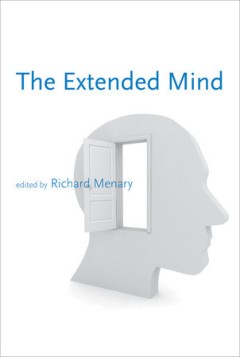
The extended mind
Leading scholars respond to the famous proposition by Andy Clark & David Chalmers that cognition & mind are not located exclusively in the head.OCLC-licensed vendor bibliographic record.
- Edition
- -
- ISBN/ISSN
- 9780262266024
- Collation
- 1 online resource (viii, 382 pages).
- Series Title
- -
- Call Number
- -
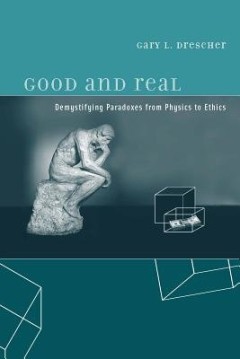
Good and real :demystifying paradoxes from physics to ethics
"A Bradford book."Examining a series of provocative paradoxes about consciousness, choice, ethics, and other topics, Good and Real tries to reconcile a purely mechanical view of the universe with key aspects of our subjective impressions of our own existence.OCLC-licensed vendor bibliographic record.
- Edition
- -
- ISBN/ISSN
- 9780262271943
- Collation
- 1 online resource (xiv, 347 pages) : illustrations
- Series Title
- -
- Call Number
- -
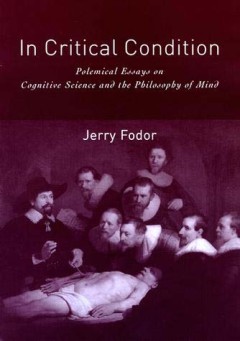
In critical condition : polemical essays on cognitive science and the philoso…
"A Bradford book."Doing philosophy, according to Jerry Fodor, is like piloting: The trick is to find an object of known position and locate yourself with respect to it. In this book, Fodor contrasts his views about the mind with those of a number of well-known philosophers and cognitive scientists, including John McDowell, Christopher Peacocke, Paul Churchland, Daniel Dennett, Paul Smolensky, a…
- Edition
- -
- ISBN/ISSN
- 0585078092
- Collation
- 1 online resource (x, 219 pages).
- Series Title
- Representation And Mind Series
- Call Number
- 100 FOD c
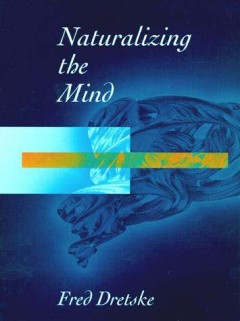
Naturalizing the mind
Naturalizing the Mind skillfully develops a representational theory of the qualitative, the phenomenal, the what-it-is-like aspects of the mind that have defied traditional forms of naturalism. Central to Dretske's approach is the claim that the phenomenal aspects of perceptual experiences are one and the same as external, real-world properties that experience represents objects as having. Comb…
- Edition
- -
- ISBN/ISSN
- 9780262271974
- Collation
- 1 online resource (xvi, 208 pages).
- Series Title
- -
- Call Number
- -
 Computer Science, Information & General Works
Computer Science, Information & General Works  Philosophy & Psychology
Philosophy & Psychology  Religion
Religion  Social Sciences
Social Sciences  Language
Language  Pure Science
Pure Science  Applied Sciences
Applied Sciences  Art & Recreation
Art & Recreation  Literature
Literature  History & Geography
History & Geography